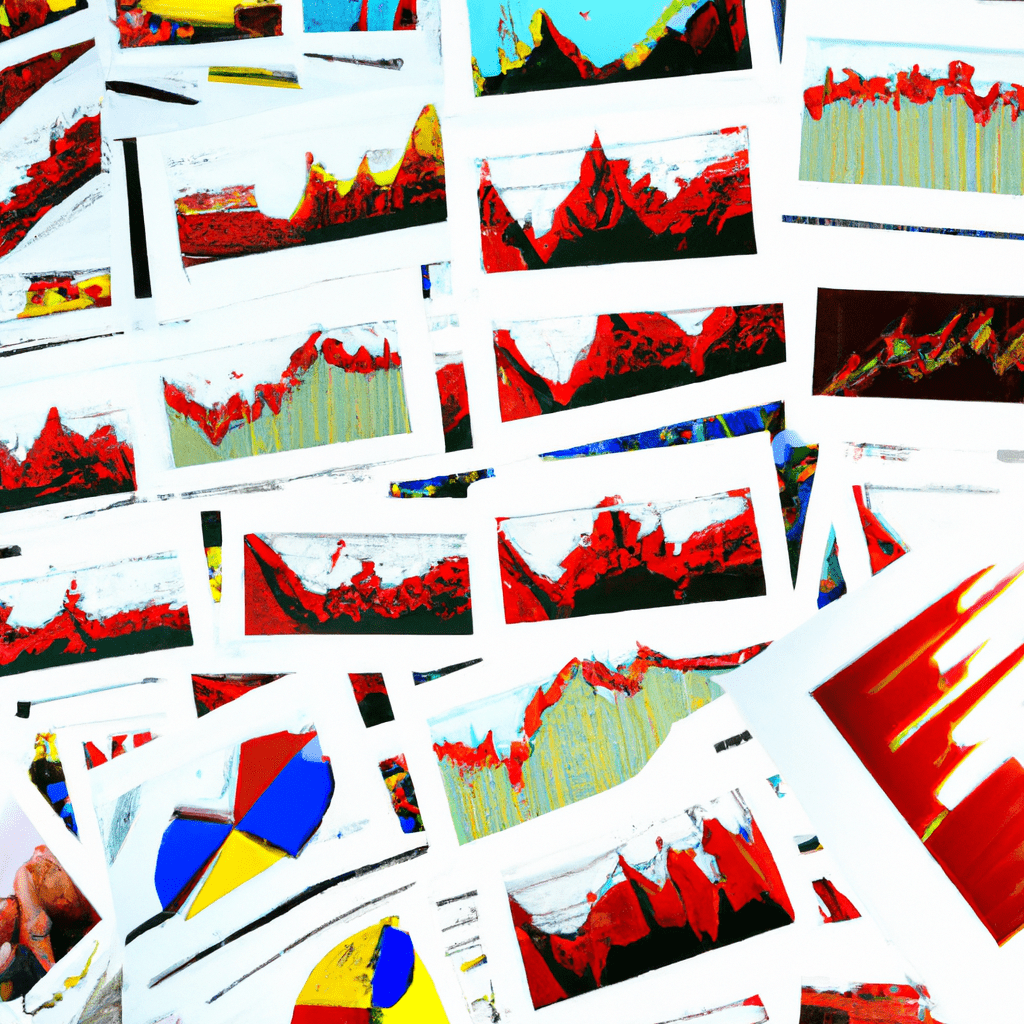In today's complex financial landscape, the world of investments and trading can often seem overwhelming and intimidating. However, understanding the fundamentals of financial derivatives can provide individuals with a valuable tool for navigating this intricate market. This comprehensive guide aims to demystify the concept of financial derivatives, particularly futures contracts and stock derivatives, while also highlighting the lucrative investment opportunities offered by futures options trading. Whether you are a beginner exploring the world of finance or a seasoned investor looking to expand your portfolio, this article will serve as a valuable resource, providing insights and explanations on these crucial elements of the financial industry. So, let's dive into the world of financial derivatives and discover the potential it holds for both beginners and experienced traders.
1. Introduction to Financial Derivatives: A Comprehensive Guide for Beginners

Financial derivatives are complex financial instruments that derive their value from an underlying asset or set of assets. They are widely used in financial markets by investors, traders, and institutions to manage risk, speculate on price movements, and enhance investment returns. In this comprehensive guide for beginners, we will delve into the world of financial derivatives, exploring the various types and their mechanics.
One popular type of financial derivative is a futures contract. A futures contract is an agreement between two parties to buy or sell an asset at a predetermined price on a future date. It allows investors to speculate on the future direction of prices and hedge against potential losses. For instance, if an investor believes that the price of a particular commodity, such as oil or gold, will rise in the future, they can enter into a futures contract to buy it at a predetermined price, protecting themselves from potential price increases. On the other hand, if they anticipate a price decline, they can sell a futures contract to profit from the expected decrease.
Options are another type of financial derivative that provide the right, but not the obligation, to buy or sell an asset at a specified price within a predetermined timeframe. They come in two forms: call options and put options. A call option gives the holder the right to buy the asset, while a put option grants the holder the right to sell it. Options are commonly used by investors to hedge against potential losses or speculate on price movements. For example, an investor holding a stock could purchase a put option as insurance against a possible decline in the stock's value.
Stock derivatives are a subset of financial derivatives that are specifically based on stocks. They include options on individual stocks, stock index futures, and stock index options. Options on individual stocks allow investors to trade the right to buy or sell a specific stock at a predetermined price. Stock index futures, on the other hand, are futures contracts where the underlying asset is a stock index, representing a basket of stocks. They provide exposure to the overall performance of the stock market rather than individual stocks. Stock index options function similarly to individual stock options, but their underlying asset is a stock index.
Futures options trading is a strategy that combines futures contracts and options. It involves buying or selling options on futures contracts, allowing traders to speculate on the direction of prices in the underlying futures market. This strategy provides flexibility, as traders can potentially profit from both rising and falling markets.
In conclusion, financial derivatives offer a range of investment and risk management opportunities. Whether it's futures contracts, options, stock derivatives, or futures options trading, understanding these instruments is crucial for investors and traders. This comprehensive guide for beginners aims to provide a solid foundation for navigating the complex world of financial derivatives.
2. Understanding Futures Contracts: A Key Element of Financial Derivatives

Understanding Futures Contracts: A Key Element of Financial Derivatives
Financial derivatives are complex financial instruments that derive their value from an underlying asset or benchmark. Among the various types of derivatives, futures contracts play a pivotal role.
A futures contract is a standardized agreement between two parties to buy or sell an asset at a predetermined price on a specified future date. These contracts are traded on organized exchanges, facilitating liquidity and ensuring fair pricing. Futures contracts are widely used by investors, traders, and businesses to manage risk, speculate on price movements, and hedge against adverse market conditions.
For beginners in the world of financial derivatives, understanding futures contracts is essential. These contracts typically involve commodities, currencies, stock indices, or interest rates. The key feature of futures contracts is their standardized nature, including the contract size, delivery date, and quality specifications of the underlying asset.
Stock derivatives, such as futures contracts, offer investors an opportunity to participate in the performance of a specific stock or stock index without owning the physical shares. This opens up avenues for diversification and risk management. Futures options trading adds another layer of complexity to futures contracts by incorporating the right, but not the obligation, to buy or sell the underlying asset at a predetermined price within a specific time frame.
Beginners seeking a comprehensive guide to futures and options trading should understand the fundamental concepts of futures contracts. These include the concept of long and short positions, margin requirements, and the role of clearinghouses in ensuring the settlement of contracts. Additionally, it is crucial to grasp the impact of market factors, such as supply and demand dynamics and interest rates, on the pricing and performance of futures contracts.
In conclusion, futures contracts are a key element of financial derivatives and provide investors with opportunities to manage risk, speculate, and diversify their portfolios. Understanding the basics of futures contracts is crucial for beginners in the world of financial derivatives, as it forms a foundation for more complex trading strategies involving stock derivatives and futures options. By grasping the concepts and mechanics of futures contracts, individuals can make informed investment decisions and navigate the dynamic landscape of financial markets.
3. Exploring Stock Derivatives and Futures Options Trading: A Lucrative Investment Opportunity

Financial derivatives are complex financial instruments that derive their value from an underlying asset or security. One type of derivative that has gained significant popularity in recent years is stock derivatives. In particular, futures options trading has emerged as a lucrative investment opportunity for both experienced investors and beginners alike.
Futures contracts are a type of financial derivative that obligates the buyer to purchase an asset or the seller to sell an asset at a predetermined price and date in the future. In the context of stock derivatives, futures contracts allow investors to speculate on the future price movement of a particular stock. This provides an opportunity to profit from both upward and downward price movements without actually owning the underlying stock.
For beginners looking to venture into the world of futures options trading, it is essential to understand the basics. A beginner's guide to futures and options can provide invaluable insights into the mechanics of these financial instruments. It covers topics such as how futures contracts are priced, the role of options in hedging strategies, and the potential risks and rewards associated with trading stock derivatives.
One key advantage of futures options trading is the leverage it offers. With a relatively small upfront investment (known as the margin), investors can gain exposure to a larger value of the underlying asset. This amplifies the potential returns, making it an attractive investment avenue for those seeking higher profitability.
Another benefit of stock derivatives is their ability to serve as a risk management tool. By utilizing futures contracts, investors can hedge their existing stock positions against potential price fluctuations. This helps protect their portfolio from adverse market conditions and minimizes the impact of stock market volatility.
However, it is important to note that futures options trading carries inherent risks. The leverage that enhances potential returns can also amplify losses. Additionally, the complex nature of financial derivatives requires a thorough understanding of the underlying market dynamics and trading strategies. Therefore, it is crucial for beginners to educate themselves and seek guidance from experienced professionals or financial advisors.
In summary, stock derivatives, particularly futures options trading, present a lucrative investment opportunity for both seasoned investors and beginners. With the potential for higher returns and risk management benefits, these financial instruments offer a unique avenue for diversifying investment portfolios. However, it is crucial to approach futures options trading with caution and seek adequate knowledge and guidance to navigate the complexities of this market effectively.
In conclusion, financial derivatives play a crucial role in modern financial markets, offering investors a wide range of opportunities to manage risk and maximize returns. This comprehensive guide for beginners has provided an overview of financial derivatives, with a focus on futures contracts and stock derivatives. By understanding the fundamentals of these instruments and exploring futures options trading, investors can tap into a lucrative investment opportunity. Whether you are a novice or an experienced trader, it is important to continue learning and stay updated with the latest trends and strategies in the world of financial derivatives. With the right knowledge and skills, the potential for success in this dynamic market is immense. So, dive in, explore, and embrace the world of financial derivatives to unlock new possibilities for your investment portfolio.





